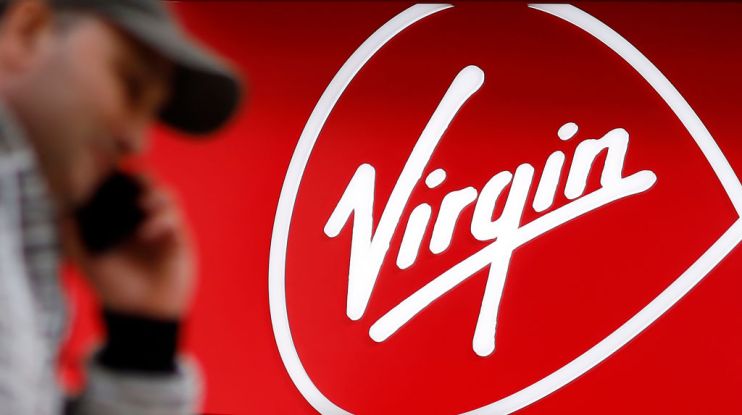How the O2-Virgin Media merger will reshape the telecoms sector

O2 and Virgin Media this morning confirmed they will join forces in a mammoth merger that will create a new £31bn telecoms powerhouse.
The deal — reports of which first emerged last week — came as little surprise to industry watchers, though the timing of the deal in the middle of a global pandemic has raised some eyebrows.
Speaking to investors this morning Jose Maria Alvarez-Pallete, chair of O2’s Spanish parent company Telefonica, vowed that the deal would “transform the telecoms landscape in the UK”.
But what will the tie-up mean for the two businesses, their rivals and customers?
A natural fit
The pairing of O2’s mobile services with Virgin Media’s broadband and pay-TV offering has come as little surprise to the industry, with analysts hailing a “natural fit”.
Even BT boss Philip Jansen acknowledged that the merger was a “sensible” move due to the growing need to converge telecoms services.
Both Telefonica and Virgin Media owner Liberty Global, which is led by billionaire John Malone, have been eyeing an exit from the market for several years, and the 50/50 joint venture offers a key opportunity to pull back.
Moreover, the deal allows the Spanish group to pay down its net debt by as much as £5.8bn.
Regulators are expected to wave through the deal — as they did for BT’s £12.5bn takeover of EE in 2016 — but hurdles may still remain.
“The greatest challenges will arise after the deal completes,” says Kester Mann, analyst at CCS Insight.
“In particular, the new unit will need to dig deep to fund the costly expansion of cable and 5G services throughout the UK.”
Mike Kiersey, principal technologist at Boomi, says the firms’ ability to integrate their IT infrastructure would be key to ensure the success of the merger.
“Once this has been established, a clear M&A post-merger integration plan is critical to integrating business-critical applications, IT systems and data,” he says.
“Both companies need to understand the importance of a harmonised infrastructure, and the severe implications of a failure to integrate two different systems.”
Vodafone: Left in the cold?
There’s no doubt that the O2-Virgin Media deal represents a significant shake-up of the UK telecoms market.
However, the impact is likely to be most severely felt by Vodafone. The mobile operator has been frequently linked to a tie-up with Virgin Media in recent years, but a deal has never materialised.
CCS analyst Mann says Vodafone is the “biggest loser” as the deal exposes its weak position in the market for converged services.
In a further blow, the merger will almost certainly scupper Vodafone’s virtual network deal with Virgin Media. Liberty Global’s service currently uses BT’s network, but was due to switch to Vodafone from next year.
So as rivals look at the new world order, further deals could be in the offing.
Ernest Doku, mobiles expert at Uswitch, suggests the deal could spark an “arms race” across the industry.
BT buckles
It was a rough morning for BT shareholders, who were hit with both a dividend suspension and the emergence of a major new rival.
The O2-Virgin deal mirrors BT’s acquisition of EE four years ago and sets up fresh competition in the converged provision of mobile and broadband services.
Holly Niblett, head of digital at Compare the Market, says the new entity posed a “major challenge” to the dominance of BT in the UK, adding that it could benefit consumers.
“Shared costs between Virgin Media and O2 should enable cost savings that, in an increasingly competitive market, may be passed onto customers as the big players battle for market share,” she says.
“BT could respond to this threat to its market-leading position by lowering prices, which would be good news for consumers.”
Jasper Lawler, head of research at London Capital Group, says: “The combination will bring extra bargaining power to potentially achieve what the two entities by themselves never could.”
He adds that the deal could “finally” prompt regulator Ofcom to order the break up of BT and its Openreach infrastructure division.
Building the brand
One major consideration — and possible point of contention — will be how Telefonica and Liberty Global present the merged entity to the market.
Marketing is a fundamental driver of success for telecoms firms, many of which offer the same or very similar services at comparative costs.
O2 and Virgin Media are both household names in the UK, and the two companies will be keen to ensure they build on this presence, rather than diluting it.
Sophie Lord, executive director of strategy at Landor, says the new company could drive a new narrative for 5G.
“These two great brands have a synergistic quality to them — Virgin Media famous for ‘fast’ and irreverence (if rather lacking any real personality), O2 famous for entertainment and service,” she says.
“Let’s hope they become more than the sum of their parts, and not just a ‘holding’ company to its many platforms — if they manage this then we’ll all be benefitting, rather than the just the deal makers and brokers.”
Kester Mann argues that the joint venture should keep the O2 brand at the expense of Virgin Media.
“Both have a strong presence, but O2’s respected customer service, highly loyal customers and sponsorship of the O2 arena mean it is impossible to drop,” he says.
“A multi-brand approach serves only to duplicate costs and risks confusing customers.”